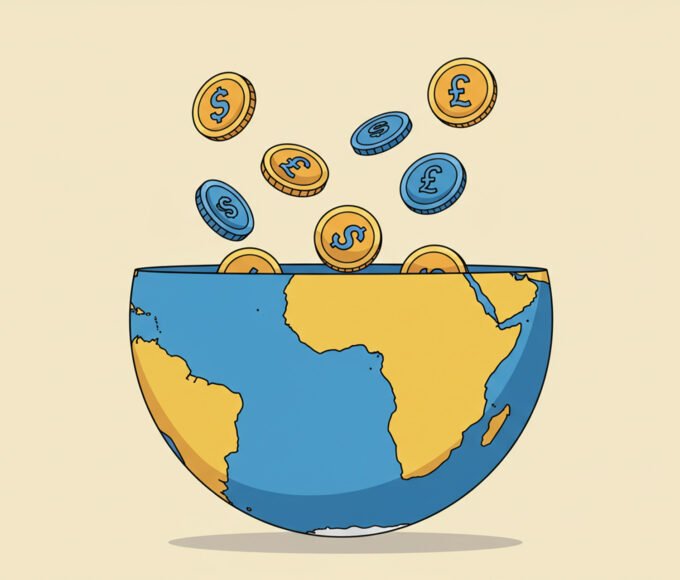Why Africa’s Social Entrepreneurs Are Your Smartest Investment
Africa's social entrepreneurs generate $2 trillion annually and create 200 million jobs. They’re driving change—combining innovation with sustainability to solve problems, create opportunities, and inspire the next generation. With such impact, could social enterprise be the key to shaping Africa’s future?

In the complex ecosystem of global finance, traditional investors often view social impact and superior financial returns as mutually exclusive. It’s like trying to harvest a crop in a drought while expecting a bumper yield—a seemingly impossible feat. Yet, in Africa, a new class of entrepreneurs is proving this assumption wrong. They are not only cultivating success in challenging environments but are also generating exceptional returns. Africa’s social entrepreneurs are at the heart of a powerful new investment thesis, one where doing good isn’t a philanthropic add-on but the very engine of profitability. For a sophisticated investor, this isn’t just an opportunity; it’s a paradigm shift.
The Two-Trillion Dollar Engine of Growth
The scale of Africa’s social enterprise sector is nothing short of breathtaking. These purpose-driven businesses generate an estimated $2 trillion in revenue annually and employ nearly 200 million people. Within Africa, the numbers are equally compelling. Nigeria leads the way with an estimated 1.3 million social enterprises, followed by South Africa with 140,000, Egypt with 135,000, and Kenya with 85,000. This vibrant ecosystem directly employs between 28 and 41 million people across Sub-Saharan Africa, creating jobs where they are needed most. This isn’t a niche market; it’s a cornerstone of the continent’s economy.
The most persuasive argument for investing in this sector, however, is its performance. A study on impact investing in Africa over the past decade reveals that 24% of Africa-focused funds delivered an impressive internal rate of return (IRR) of 15% or more. This proves that social and environmental returns don’t come at the expense of financial ones; they are, in fact, a catalyst for them. With over $8 billion already invested and demand far outstripping supply, more than half of all global impact investors plan to increase their African portfolios in 2025, signaling a clear and growing confidence in the continent’s purpose-driven economy.
Job Creation as a Core Business Strategy
Africa’s youth bulge presents both a challenge and an immense opportunity. With millions of young people entering the workforce, the need for job creation is critical. This is where social enterprises excel. Unlike their purely profit-driven counterparts, they are deliberately designed to create employment, particularly for marginalized communities. The data is unequivocal: 78% of social enterprises actively seek to create jobs, compared to just 27% of traditional businesses. On average, they employ 21 people, in stark contrast to the two employees typically found in regular small and medium-sized enterprises (SMEs). This commitment to employment is a core part of their mission, with 73% of these enterprises deliberately hiring from poor communities, providing a vital bridge between survival and prosperity.
This job-creation powerhouse is scaling rapidly. Projections show that African social enterprises are on track to create 1 million new jobs by 2030. This makes them a strategic solution to Africa’s notorious $140 billion SME financing gap, as they fill critical service gaps in sectors like healthcare, education, energy, and finance. They are the “missing middle” in Africa’s economic structure, providing the essential services and employment opportunities that larger corporations and the public sector often overlook.
Pioneering the Future: Climate and Commerce
The ingenuity of African social entrepreneurs is perhaps most evident in their work on climate change. With the continent being disproportionately vulnerable to environmental shifts, these enterprises are at the forefront of developing sustainable solutions. They are leading the charge in renewable energy, sustainable agriculture, and climate adaptation, turning global challenges into local business opportunities.
Rwanda’s MeshPower, for instance, has developed a model that powers rural communities with solar mini-grids, bypassing the need for a national grid and bringing clean, reliable energy to those who need it most. In Kenya, Ecocharge addresses both waste management and energy poverty by producing 20,000 tons of biomass briquettes annually, providing a clean alternative to charcoal while creating jobs. Similarly, Solar Sister empowers women entrepreneurs across Uganda, Tanzania, and Nigeria to distribute clean energy products, building sustainable livelihoods while bringing light and power to millions. This blending of business with a social mission is a powerful formula.
The rise of digital platforms further amplifies this impact. Africa’s social commerce market, where businesses leverage social media to sell goods and services, is projected to grow by 16.2% annually, reaching $9.43 billion by 2030. This growth is fueled by a young, tech-savvy population and the continent’s highest-in-the-world rate of female entrepreneurial activity, at 24%. These entrepreneurs are not just adapting to new trends; they are defining them, creating a dynamic market that is ripe for investment.
Your Strategic Next Move
The case for investing in Africa’s social entrepreneurs is compelling and built on solid evidence. This is an investment class that offers a rare trifecta: superior financial returns, profound social and environmental impact, and access to the world’s fastest-growing demographic. The data—from proven 15-25% returns to the creation of millions of jobs—paints a clear picture of a trillion-dollar market opportunity. The question for forward-thinking investors is no longer whether Africa is a good bet, but how quickly they can get started. The future of global business is being written in Africa, and its most compelling chapters are being authored by those who are blending profit with purpose.
Recent Posts
Related Articles
How Africa’s Creator Economy is Rewriting the Rules of Digital Commerce
With 4.2 million creators already employed and revolutionary payment systems emerging, Africa's...
ByTrendit AfricaIs It Time for Africa to Rethink Its Approach to Diaspora Capital?
In 2023, over $90B was sent back to Africa by its global...
ByTrendit Africa











Leave a comment